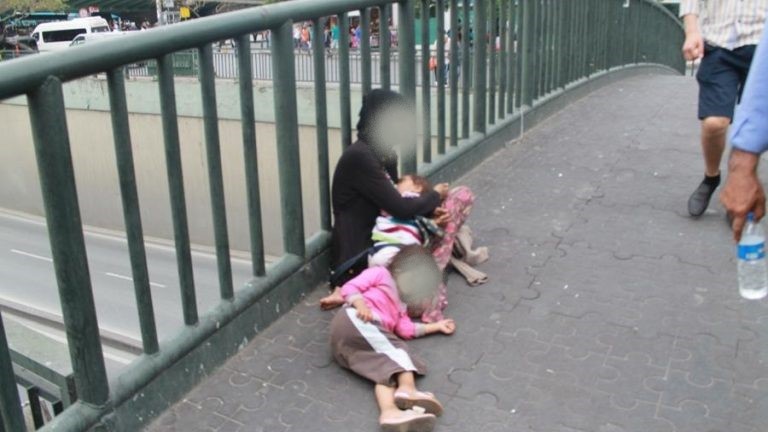For personal reasons, my husband and I decided not to have children. But my friend Mona tried every method to conceive without success. She came to visit me a while ago, and said, stuttering, “There is a woman who wants to sell her child. What do you think? Should I buy him?” I was stunned when a woman who had survived the Islamic State (ISIS) and who was in her ninth month of pregnancy told her neighbor, “After two weeks, I’ll have a boy, and I want to sell him. Do you know anyone who will buy him?”
The pregnant women offered the child to Umm Ahmed, a woman in her fifties living with her disabled husband, but Umm Ahmed refused, saying that the mother would change her mind when the child grew up. It was Mona who told me the story of Umm Ahmed, as she tried to hold back her tears and saying, “I am dying for a child.”
My friend actually wanted to buy the child, and the woman was trying to induce her by saying it was a boy. But she didn’t care: “Boy or girl, it doesn’t matter.” My friend did not know many of the details except that this woman’s second husband had died while she was pregnant, and that she had two children from her first husband, who was killed last year. After his death, she fled to an area controlled by ISIS, and no one knew anything about the second husband. She reached the suburbs of Damascus while pregnant in the first month.
I went with my friend and my brother to look for the woman. The road was bumpy at first, and then turned into a river of mud, and the taxi driver refused to continue. We got out of the taxi on the outskirts of Damascus, in a poor area where the buildings are almost collapsing under the humidity and there are few services. We searched for the woman who had decided that maternal feelings were a luxury she could not afford and so was selling her child and leaving the area before she grew attached. In this way, put simply, perhaps she had sacrified one child to save the others from this hell. Perhaps — who knows?
My friend and I went back disappointed. In a dark side street we passed, an infant lay on the ground with nothing to protect him from the cold and the frosting asphalt except some cardboard. His feet and hands were moving in the air as he screamed, perhaps begging for warmth. A women sat before him, who I presumed to be his mother, but in the darkness, it was difficult to see. The screams of the child cut through me. After a few meters, I stopped, and I wanted to go back and beg her, “For God’s sake, put him in your arms, it’s so cold.” But my brother stopped me from going back, and pulled me by the hand, saying: “First of all, she is not his mother. What do you think she is doing in this empty street?”
Umm Ahmed told me that a child was born in the al-Zahrawi hospital in Damascus and sold there, and that the mother disappeared for two weeks before returning to tell her neighbors that she had given birth to a stillborn, and then moved from the district to an unknown location. I sought out an obstetrician to ask him what he thought of that. He was not interested in the incident until I noted the name of the hospital. It was as if I’d stepped on a landmine: “Look, I don’t know anything. My advice is to forget it.”
I know that fear well, and that tone, between advice and a threat. Fear infected me, and so I stopped going to the hospital. In Damascus, you need to turn a blind eye to calamities, if only so you can close your eyes a little at night.
If the market for looted goods near your house bothered you, well now there are looted children too.
This article was translated and edited by The Syrian Observer. Responsibility for the information and views set out in this article lies entirely with the author.


